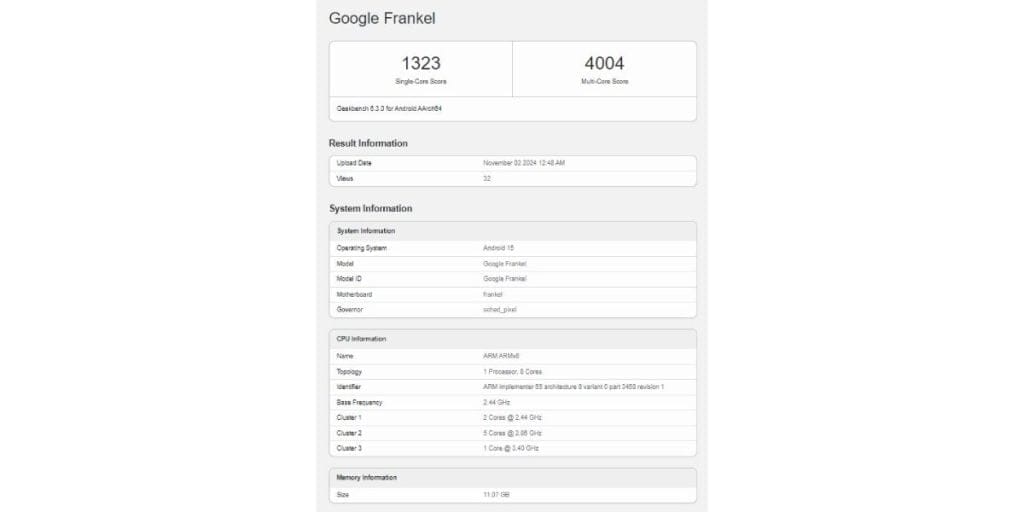Google’s new Tensor G5 chip, which is set to be used in the next Pixel phones, has reportedly appeared on the Geekbench benchmarking site. While Google has not officially confirmed this, the listing provides insights into the potential performance and core setup of the system on chip (SoC).
Tensor G5’s Geekbench Appearance
The chip is listed under the model ID “Google Frankel” on Geekbench (previously known as “Laguna” in earlier leaks). It apparently achieved a score of 1323 in the single-core test and 4004 in the multi-core test. These results are lower than those of the Tensor G4, indicating that the G5 may not be able to compete with Qualcomm’s latest Snapdragon 8 Elite or MediaTek’s Dimensity 9400 flagship chips. It also seems tough for Google to surpass previous generation flagship chips from these rivals.
Detailed Specifications
The Geekbench entry matches earlier leaks, showing a core setup with one high-performance core running at 3.40 GHz, five mid-range cores at 2.86 GHz, and two low-power cores at 2.44 GHz. Additionally, it confirms that an Imagination Technologies PowerVR D-Series DXT-48-1536 GPU is part of the package. Prior reports suggested that Google would shift from Samsung to TSMC for the Tensor G5’s production. This chip is anticipated to be manufactured using TSMC’s 3nm N3E process node, with a die size around 121 mm².
Future Outlook
This benchmark test for Google’s upcoming SoC might indicate that the chip is still in the early stages of development, which could explain the lower-than-expected scores, or that Google isn’t focusing on achieving the highest performance. A company executive had previously mentioned that the Tensor G4 was not aimed at breaking records, but rather at enhancing the user experience.
We hope the Tensor G5 doesn’t take a similar route, especially since it is expected to power devices priced above $1000. This initial version of the Tensor G5 likely requires considerable optimization to boost its performance in future benchmarks.



Leave a Reply